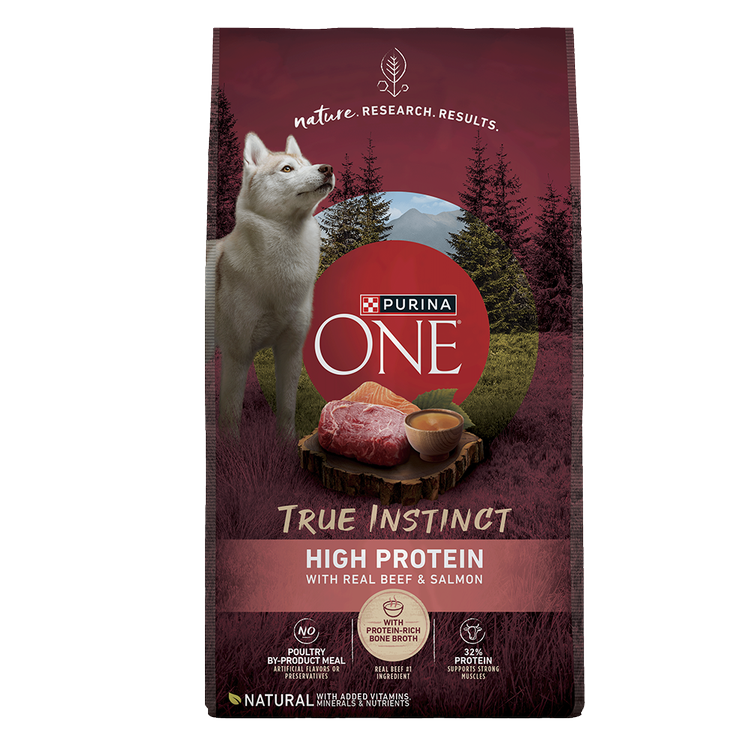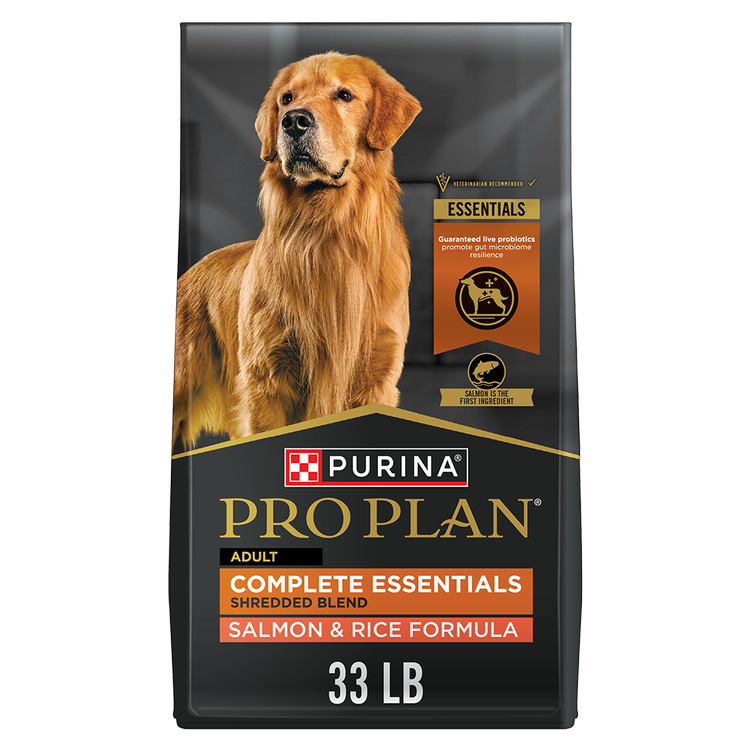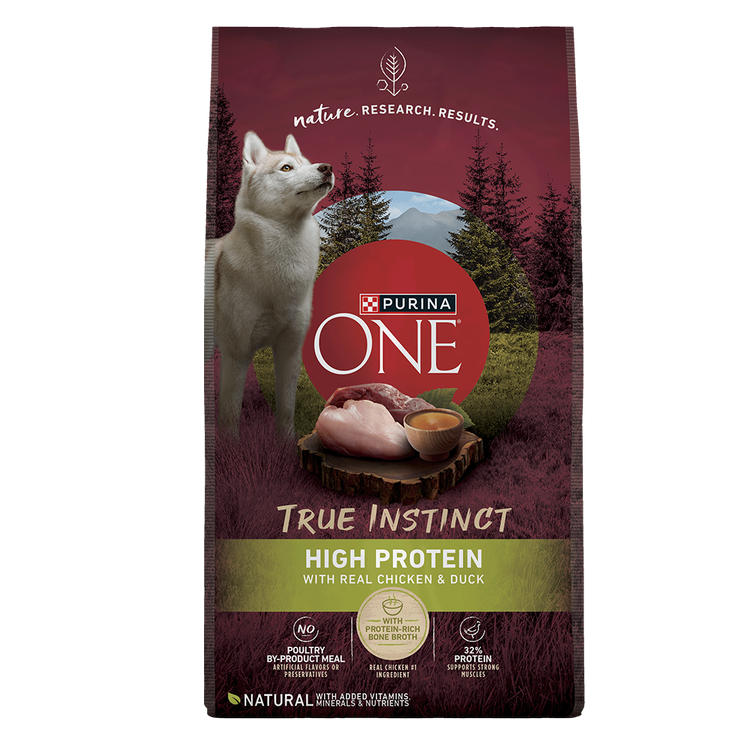What Are the Benefits of High Protein Dog Food?


As one of the most crucial nutrients in your dog’s diet, protein in dog food helps support dogs’ muscles, skin, immune system, hair and more.
If you’re a dog or puppy owner, you’re probably used to seeing dog food labels call out their protein content. That's because daily protein intake is an integral component of a complete and balanced diet.
Protein is made from amino acids, which are considered the building blocks of protein. Your dog needs food that provides the amino acids they need to support their health, energy and more.
Types of Protein
Protein supplies amino acids, supports tissue repair and muscle growth and provides energy. Protein sources include:
- Muscle Meat: This includes meat from muscles like the thigh or the muscles surrounding ribs.
- Organs: Beneficial proteins from animal sources supply high-quality protein for your dog. In the wild, nutritious internal organs make up a large part of the canine diet.
- Animal Protein: This is a general term that includes several animal-related protein sources. These include poultry (chicken, turkey, duck), pork, beef and fish. Muscle meat and by-products like heart, liver, kidneys and lungs are all nutritious sources of animal protein, as well as meals made from them.
- Grains and Oilseeds: Many types of oilseeds (soybeans) and grains (corn, wheat) also provide protein.
Importance of Protein Levels in Dog Food
Complete and balanced dog foods are formulated to provide your adult dog with adequate dietary protein and amino acids to support their maintenance needs.
Puppies, however, require extra dietary protein while they grow and develop. It is important to select a food formulated for puppies (or “All Life Stages”). Senior dogs also need higher amounts of protein to maximize their lean body mass.
How Much Protein Does a Dog Need?
The answer to how much protein your dog needs depends on several factors, including life stage, lifestyle/activity levels and their health.
Life Stage
Puppies
Complete and balanced dog foods are formulated to provide adult dogs with adequate dietary protein and amino acids to support their maintenance needs. Growing puppies, however, require extra dietary protein while they grow and develop. Fortunately, their food should be formulated accordingly, so you don’t need to worry about finding high-protein puppy food. Indeed, too much protein in their diet can make them develop too quickly.
Senior Dogs
As dogs get older, they need more protein in their diets to maintain their ideal body condition. Most senior dog food is formulated with sufficient protein for their age. If you think your pet may require additional protein, ask your veterinarian for their input.
Gestating and Lactating Dogs
A gestating dog’s diet should be high in protein. For lactating dogs, protein is just one factor to consider. A lactating dog needs a high-quality, nutrient-dense diet that is also high in calories.
Before deciding on a food, it’s wise to consult your veterinarian to ensure your gestating or lactating dog will get adequate protein, fat and calories during this crucial time.
Lifestyle & Activity Levels
High Energy Dogs
High-energy breeds like the Boxer or Vizsla need a lot of exercise and activity. To help support their higher energy levels, they can benefit from a high-protein dog food.
Before you switch to this kind of diet, however, check with your veterinarian to make sure it’s appropriate. While your pet may be energetic, too much protein can make even active dogs gain weight.
Canine Athletes & Working Dogs
When your dog exercises, their muscles build and break down muscle protein at a much faster rate. The amino acids in protein promote muscle growth and recovery, which means some highly athletic dogs can benefit from high-protein dog food.
Working dogs can also benefit from getting more protein in their diets. Breeds like the Siberian Husky or herders spend most of their time pulling sleds or herding farm animals, which can take a toll on their muscles. Added protein helps protect their muscles.
Health
Dogs Who Need to Manage Their Weight
If your dog is overweight, you may want to consider switching them to a reduced-calorie, lower fat, high-protein dog food. Feeding an overweight dog a diet with higher amounts of protein can help burn fat and calories, helping to facilitate weight loss. A high-protein dog food may also help your dog feel satisfied longer.
Get more insight, tips and advice about dogs from our experts on our Pet Expertise page.
Related articles

Find Your Pet’s Perfect Food
Get your personalized recommendation with our Pet Food Finder tool.






